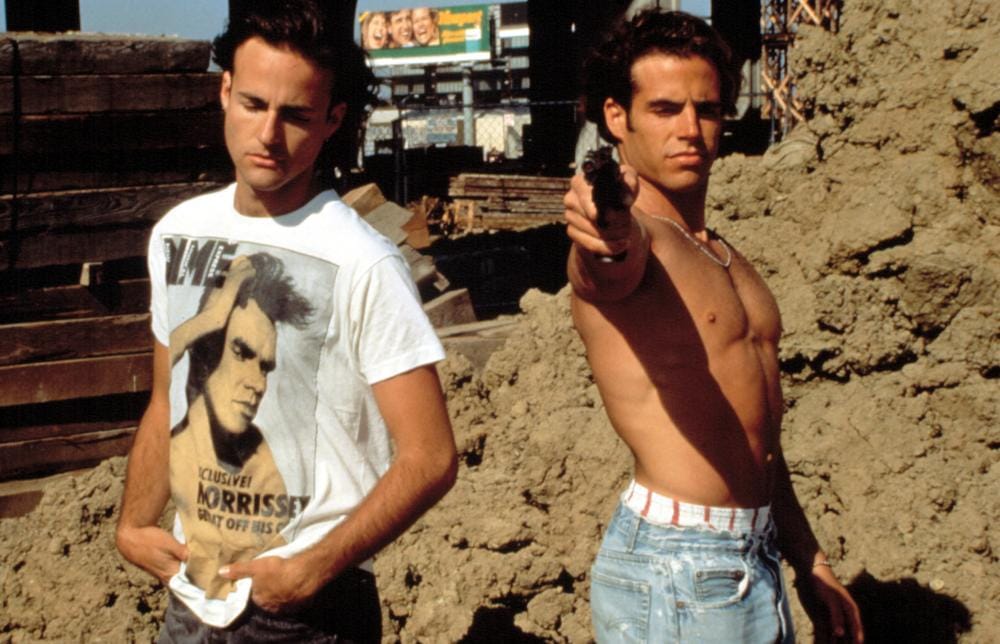Gay Cinema Classic: The Living End
Gregg Araki's nihilistic road-trip captures the essence of queer identity in the early 90s.

Written and directed by Gregg Araki, The Living End was released in 1992.
The story revolves around Jon (Craig Gilmore) and Luke (Mike Dytri).
Having just been diagnosed as having acquired HIV, Jon's world is thrown into a spiral of despair. He's a freelance writer with a supportive friend but he's struggling to process how to respond to the diagnosis. As Jon drives along an LA freeway, Luke suddenly jumps in front of his car. Luke is a hustler who is running from a homophobic assault. Their paths crossing by chance, Luke and Jon embark on a whirlwind romance that sees them embarking on a reckless road-trip with no clear destination.
Is this a film worth watching?
Although a budget film that is unashamedly rough around the edges, The Living End - like most of Araki's work - has a compelling energy that draws you in to his storytelling.
It's very much a story of its time. Both Jon and Luke are living with HIV. Their experience is a world away from where we are today with the virus - their treatment options were uncertain, they faced enormous stigma, and the prospect of "living with HIV" would have seemed like a pipe-dream. They are "men on the edge" in every aspect of their lives.
This is a film that advocates living in the moment, of not being bound by conventional rules and expectations. Why be constrained by the construct of a society that has deliberately othered you?
What we're shown is nihilism as liberation. Jon declares that he doesn't want to "fuck in a plastic bag". The two men fuck without condoms and without consequences - a radical act of defiance that was a bold choice for Araki to portray on screen at this time.
While the primary focus of the film is on the central characters, Araki frequently uses idiosyncratic background characters for comic relief or to shift the tone. It's a device reminiscent of the films of David Lynch.
The Living End captures a slice of our queer history but also is a useful reminder of the power of queer anger. We have little to gain by playing by society's rules, so why not fuck the system?


